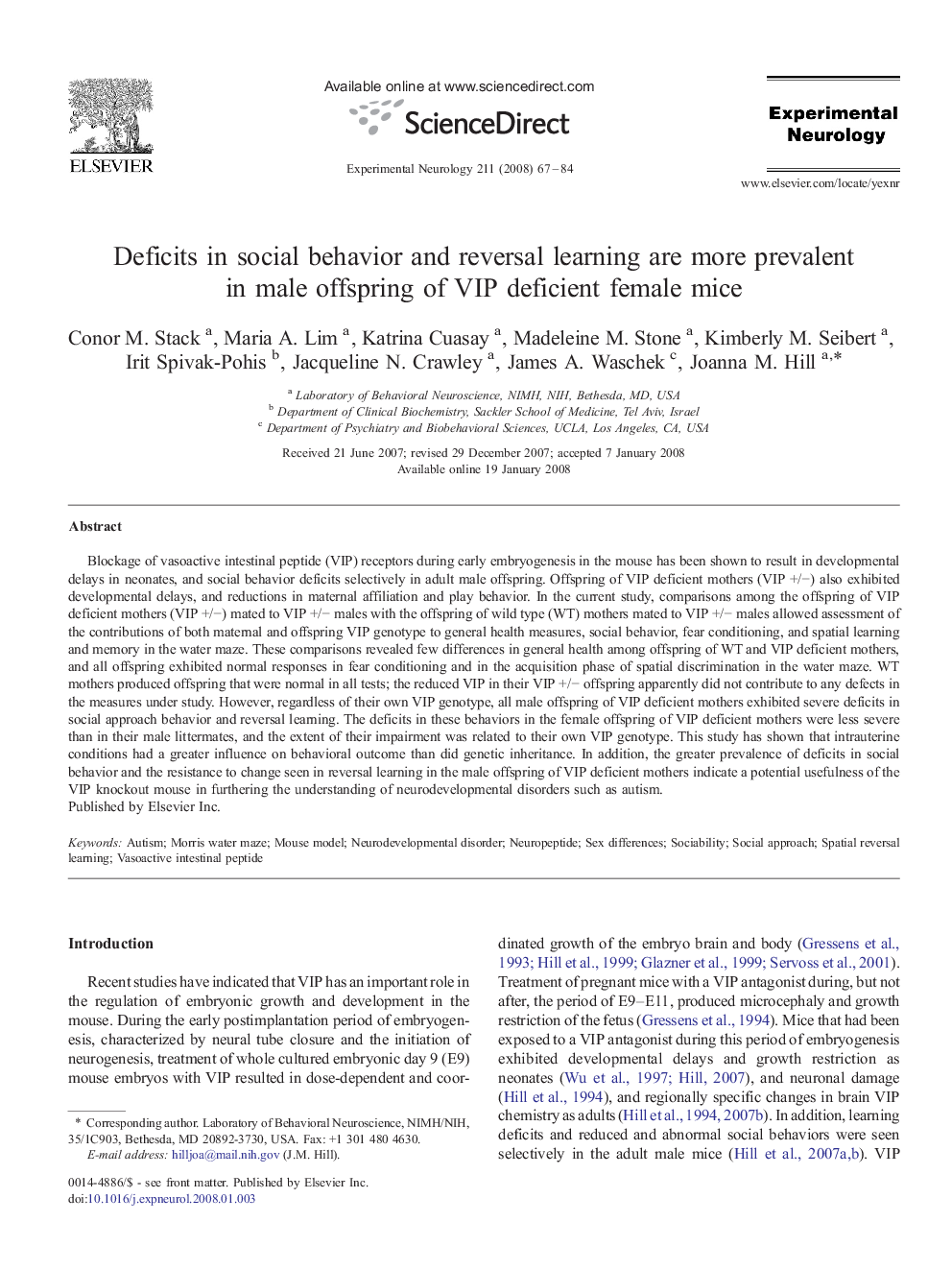| Article ID | Journal | Published Year | Pages | File Type |
|---|---|---|---|---|
| 3056659 | Experimental Neurology | 2008 | 18 Pages |
Blockage of vasoactive intestinal peptide (VIP) receptors during early embryogenesis in the mouse has been shown to result in developmental delays in neonates, and social behavior deficits selectively in adult male offspring. Offspring of VIP deficient mothers (VIP +/−) also exhibited developmental delays, and reductions in maternal affiliation and play behavior. In the current study, comparisons among the offspring of VIP deficient mothers (VIP +/−) mated to VIP +/− males with the offspring of wild type (WT) mothers mated to VIP +/− males allowed assessment of the contributions of both maternal and offspring VIP genotype to general health measures, social behavior, fear conditioning, and spatial learning and memory in the water maze. These comparisons revealed few differences in general health among offspring of WT and VIP deficient mothers, and all offspring exhibited normal responses in fear conditioning and in the acquisition phase of spatial discrimination in the water maze. WT mothers produced offspring that were normal in all tests; the reduced VIP in their VIP +/− offspring apparently did not contribute to any defects in the measures under study. However, regardless of their own VIP genotype, all male offspring of VIP deficient mothers exhibited severe deficits in social approach behavior and reversal learning. The deficits in these behaviors in the female offspring of VIP deficient mothers were less severe than in their male littermates, and the extent of their impairment was related to their own VIP genotype. This study has shown that intrauterine conditions had a greater influence on behavioral outcome than did genetic inheritance. In addition, the greater prevalence of deficits in social behavior and the resistance to change seen in reversal learning in the male offspring of VIP deficient mothers indicate a potential usefulness of the VIP knockout mouse in furthering the understanding of neurodevelopmental disorders such as autism.
